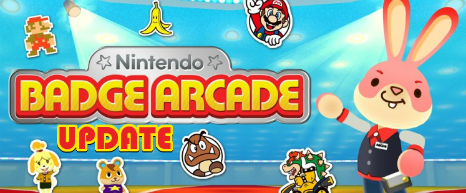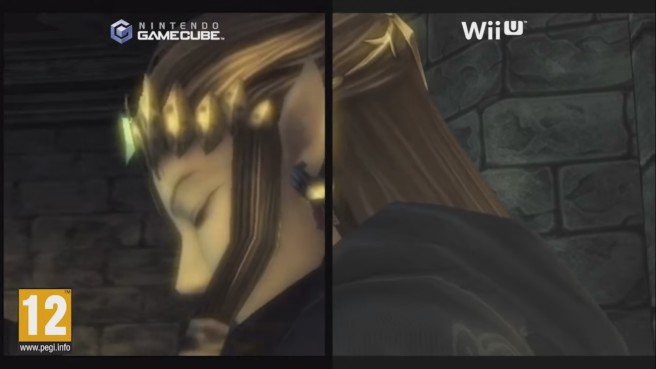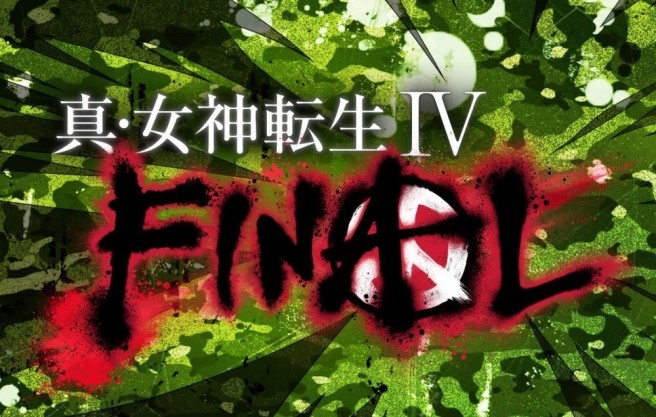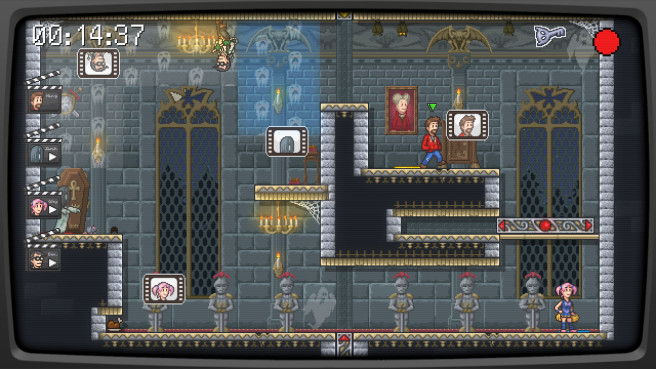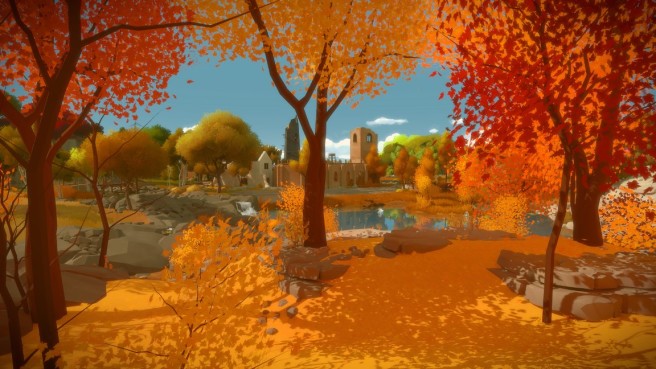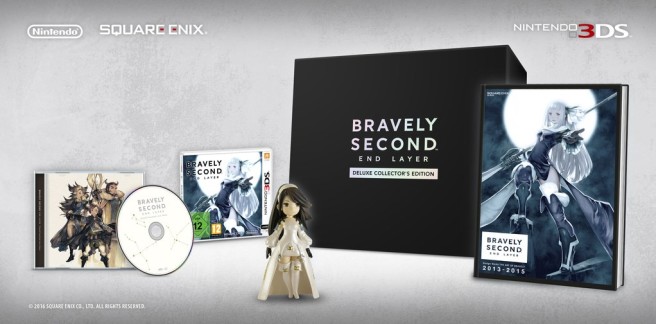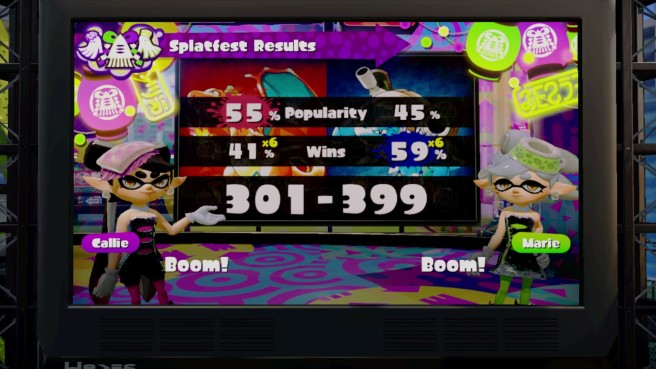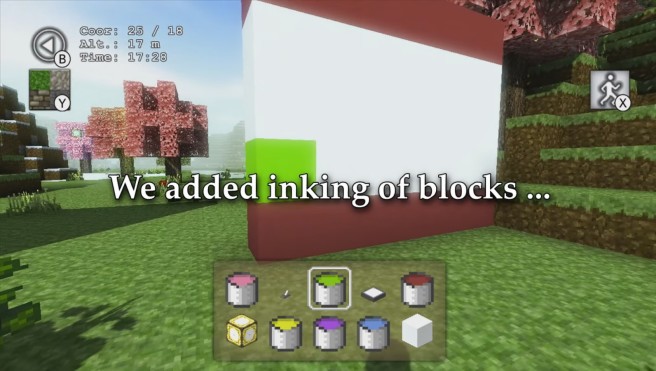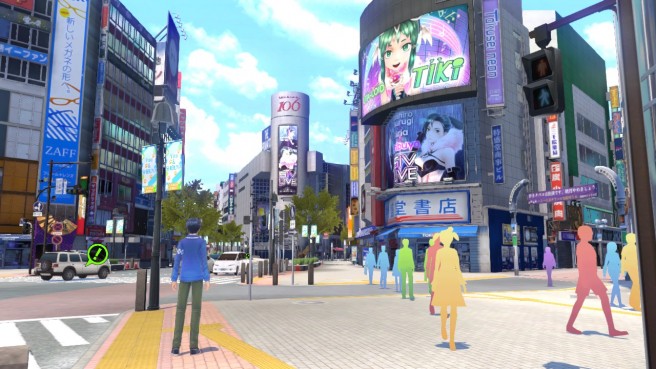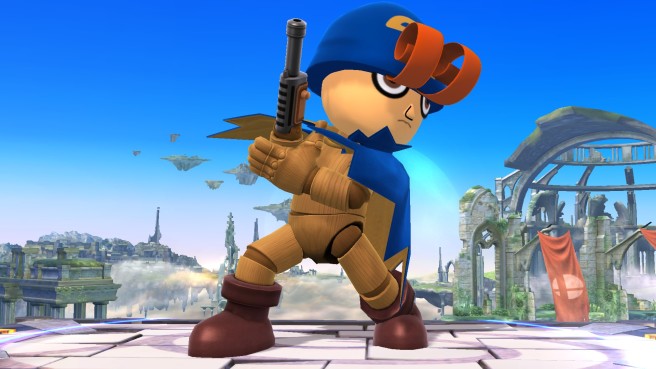Nintendo Badge Arcade – North American updates for the week of Feb. 15, 2016
Posted on 9 years ago by Brian(@NE_Brian) in 3DS eShop, News | 0 comments
Update: Bumped to the top. Added in Sunday’s updates.
Nintendo Badge Arcade has been receiving daily updates since heading. Because it’s continually updated with content, we’re rounding up all of the additions and changes in a weekly post.
Here’s what’s on tap for the week of February 15:
– 7 Zelda: Wind Waker HD panels (2 with 2 days left, 5 with 1 day left)
– 2 Zelda: A Link Between Worlds panels (1 day left)
– 4 Zelda: Tri Force Heroes panels (2 with 2 days left, 2 with 1 day left)
– 4 Mario Kart panels
– 6 Animal Crossing panels
– 3 Mario chocolate panels
– 1 Nikki Swapnote panel
– 1 food panel
– 2 Kirby panels
– Animal Crossing holiday theme offer until 2/18
More: Nintendo Badge Arcade
Zelda: Twilight Princess HD – GameCube and Wii U comparison from Nintendo
Posted on 9 years ago by Brian(@NE_Brian) in GameCube, Videos, Wii U | 28 Comments
Nintendo is joining in on the fun of comparing The Legend of Zelda: Twilight Princess on GameCube to the new HD version on Wii U. Check out a brief video from the company below.
Over an hour of Shin Megami Tensei IV Final footage
Posted on 9 years ago by Brian(@NE_Brian) in 3DS, Videos | 0 comments
A whole bunch of footage has come in for Shin Megami Tensei IV Final, which recently came out in Japan. Watch the video below.
More: Atlus, Japan, Shin Megami Tensei IV Final
Replay: VHS is not Dead footage
Posted on 9 years ago by Brian(@NE_Brian) in Videos, Wii U eShop | 0 comments
Replay: VHS is not Dead will be added to the Wii U eShop in just a few days. Check out some footage of the game below.
The Witness unlikely for Wii U, but dev “will see about the next Nintendo console”
Posted on 9 years ago by Brian(@NE_Brian) in News, Switch | 5 Comments
In 2013, when The Witness was first announced, creator Jonathan Blow left the door open to a Wii U version. The game has now debuted on PlayStation 4 and PC. Could a Wii U version still be a possibility?
On Twitter, Blow told one fan that his new game is “unlikely” for Wii U. That being said, he added that he’ll “see about the next Nintendo console” – NX, in other words.
Here’s the full tweet:
@federationforce It is unlikely that we could do it on the Wii U but we will see about the next Nintendo console.
— Jonathan Blow (@Jonathan_Blow) February 16, 2016
More: indie, Jonathan Blow, The Witness
Bravely Second – a look at the Deluxe Collector’s Edition art book and figure
Posted on 9 years ago by Brian(@NE_Brian) in 3DS, Videos | 1 Comment
Next Friday, Bravely Second is due out in Europe with a special edition. An unboxing video of sorts showing the art book and figure from the Deluxe Collector’s Edition can be found below.
Thanks to shinun for the tip.
More: Bravely Second, Square Enix, unboxing
Splatoon – Splatfest #11 results
Posted on 9 years ago by Brian(@NE_Brian) in News, Wii U | 14 Comments
After a day of intense battles, Splatoon’s latest Splatfest has ended. The results of the Pokemon Red vs. Blue competition in North America/Europe and Pokemon Red vs. Green event in Japan are now in.
You can see how things panned out in North America above. As for Europe and Japan, those results are below.
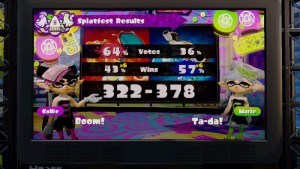
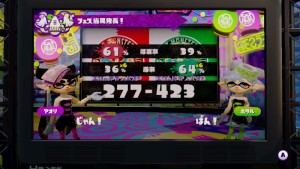
Discovery update 1 – development snapshot 3
Posted on 9 years ago by Brian(@NE_Brian) in Videos, Wii U eShop | 1 Comment
Noowanda has published a third video which showcases the first update for Discovery. Check it out below to see the new functionality of inking blocks.
More: Discovery, indie, Noowanda, title update
Genei Ibun Roku #FE devs on reproducing Shibuya, game structure, scrapped battle intro idea
Posted on 9 years ago by Brian(@NE_Brian) in News, Wii U | 14 Comments
Several developers behind Genei Ibun Roku #FE were interviewed in Nintendo Dream’s February issue. Surprisingly, the March edition has another interview with the team as well. The lengthy lineup of staff who participated include producer Hitoshi Yamagami (Nintendo), director Kaori Ando (Nintendo), producer Shinjiro Takata (Atlus), director Eiji Ishida (Atlus), chief director Wataru Hirata (Atlus), art director Fumitaka Yano (Atlus).
Nintendo Dream’s latest feature isn’t quite as interesting as last month’s where we learned that Genei Ibun Roku #FE was originally planned for 3DS and considered a wide array of genres. But there are still quite a few juicy tidbits. After the break, you can see what the developers had to say about reproducing Shibuya, the game structure, and an idea for battle intros that was scrapped.
Sakurai considered Geno for Smash Bros.
Posted on 9 years ago by Brian(@NE_Brian) in 3DS, News, Wii, Wii U | 189 Comments
There’s a pretty big interview with Masahiro Sakurai in this month’s issue of Nintendo Dream. We already covered quite a bit of it earlier today, but there’s additional news emerging from the magazine as well.
As spotted by Source Gaming, Sakurai states that he wanted Geno to be a playable fighter in Brawl, and apparently Wii U/3DS as well. He also acknowledged that Geno is popular, especially when talking about old characters.
We did end up with a Geno costume in Super Smash Bros. for Wii U and 3DS. Obviously that’s very different from a playable fighter, however. Maybe we’ll see him in the franchise’s next entry?
